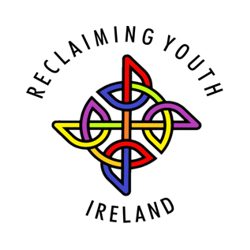The term ‘Relational Practice’ has been used by many caring and therapeutic professions over recent decades and it is assumed to have a single and universally accepted definition. This is not the case. There is also an implicit assumption that those who practice ‘relationally’ are aware of the many and varied components, threads and uses associated with relational practice. This is also not the case.
Recently, much has been achieved in terms of defining what is meant by Relational Practice and how it differs from other approaches.
Reclaiming Youth Ireland has been at the forefront of carrying out direct research and facilitating events to discuss and agree on what Relational Practice is, in the context of working with children, youth and families.
At an international gathering of relational professionals in 2019, a list of ‘relational’ practices were identified. This list included concepts such as:
- Embracing diversity
- Listening with understanding
- Being proactive (not reactive)
- Making the time to reflect
- Showing Love
- Compassion
- Kindness
- Using unconditional ‘therapeutic’ spaces
- Developing Self.
Additionally, at this gathering a list of practices to avoid, which were termed ‘un-relational’ practices, was articulated and these included:
- Using compliance-based practices
- Giving up
- Being Time Limited
- Flaw Finding
- Having a ‘fixing’ mentality
- Having a purely behavioral focus
- Judging
- Shaming.
Following from the 2019 gathering, in 2020 an international survey was conducted with around 50 prominent international leaders and experts across five continents with backgrounds in the fields of child and youth care, education, psychology and social work. The potential participants were identified as having expertise in the area of relational practice, having written books, book chapters or journal articles on topics related to relational practice over the past 10 years. Individually, they had between 10-50+ years of working in the various related professions. Responses were received from participants from five continents.
The responses were themed and distilled into 25 ‘essential components’ that are required for effective relational practice.
The components are listed in the matrix below. This is not an exhaustive list.
These components, practices and values are at the core of everything offered by Reclaiming Youth Ireland.
| Be Loving and understand the need for love | Be Curious and have a sense of Wonderment | Use Active Communication skills. | Want to and be able to ‘Connect’ | Be an exemplar of Integrity |
| Be able to ‘live/work in the present & remaining emotionally available | Engage in a purposeful and intentional manner | Be ever vigilant of one’s self and have good self awareness | Understand processes associated with facilitating positive change. | Be ‘transitionally aware’ |
| Understand risk and have a safety orientation | Be aware of the purposeful and therapeutic uses of fun and humour | Have great empathy | Be reflective and reflexive | Understand how to interpret and respond to ‘needs-based’ behaviours |
| Have a clear focus on ‘Other’ (there person you are working with) | Understand the therapeutic nature of unconditional spaces | Be truly non-judgemental and accepting of who ‘Other’ is and the journey they have travelled | Have good Professional ‘wisdom’ and be ‘authoritative’ | Have a good understanding of the concept of ‘Hurt & Pain’ based behaviours. |
| Be able to exist as an ‘Equal’ in relationship with ‘Other’ | Be aware of the impact and prevalence of trauma and be trauma informed | Be Trustworthy | Have a ‘strengths-focus’. | Have and promote hope and optimism in all you do. |
